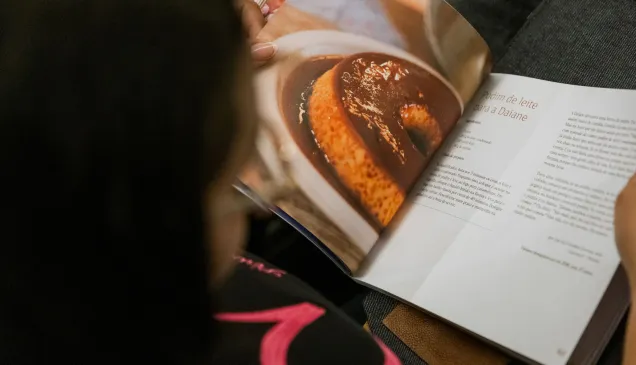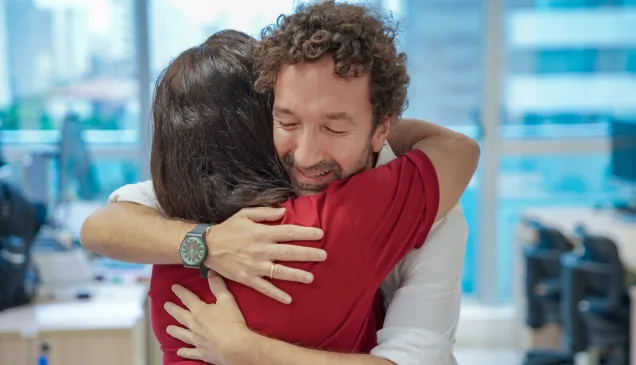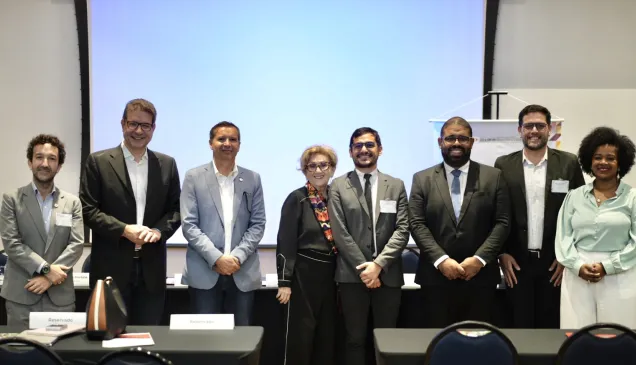Brazil: ICRC water and sanitation projects benefit migrants and residents in Pacaraima
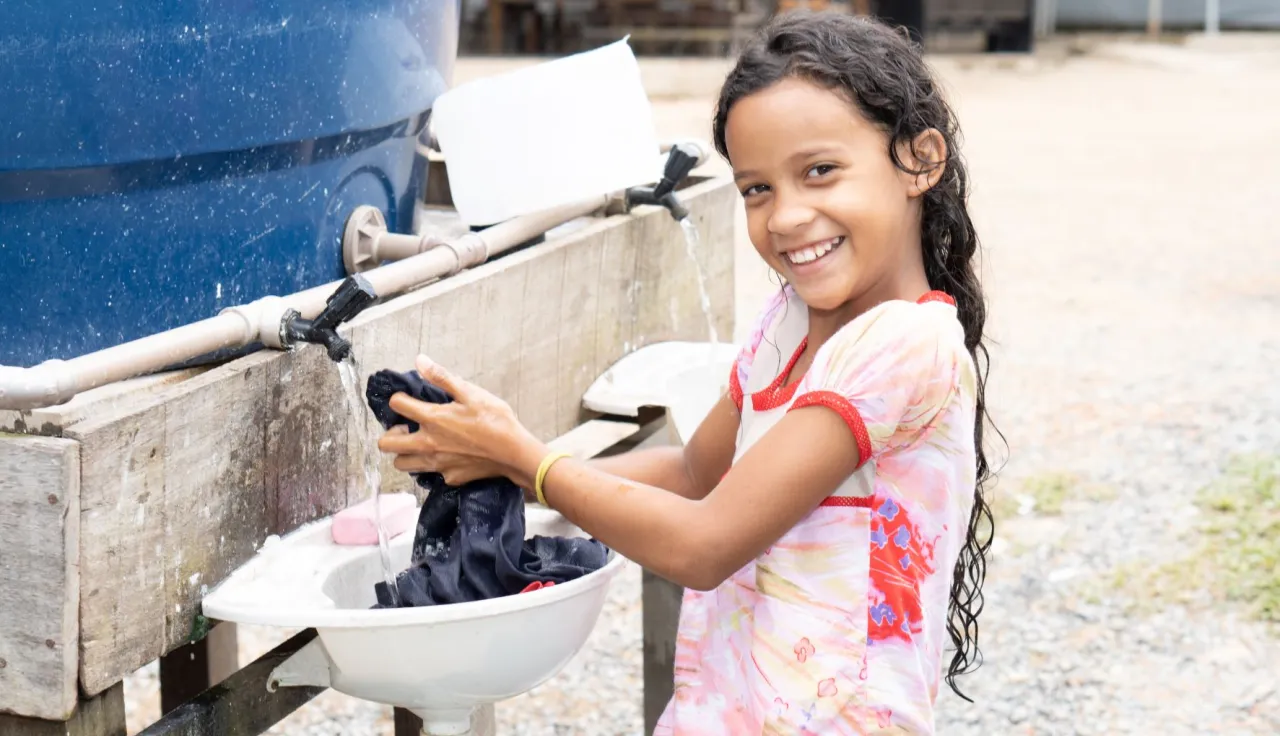
Having access to clean water and basic sanitation is essential to living with dignity. While one of the guidelines for preventing Covid-19 is hand washing, access to soap and water can be a luxury in some locations
In the town of Pacaraima (RR) on the border with Venezuela, a common problem faced by both the host community and migrant people arriving each day into the municipality has been a lack of access to clean water and sanitation.
Student Keberlin Yelena Ugas Martínez and computer technician Roniel Alejandro Bermúdez Henrique found themselves in a complicated situation when they first arrived in the city from Venezuela. Without a place to stay, the couple had to spend a few nights sleeping on the streets of Pacaraima, lacking a proper area to bathe or a source of clean water so they and their two children could drink.
After a few days in rough conditions, Keberlin and Roniel finally found shelter in the Baptist Community of Pacaraima, which took them in as one of the Venezuelan migrant families at the location.
The church is one of the places that benefits from the International Committee of the Red Cross (ICRC) in Brazil's water and housing program, which promotes partnership projects to improve the conditions for the drinking water supply, sanitation and hygiene standards in communities impacted by migration in Roraima.
"It was such a relief when we finally took a shower. Before [the community], we used to borrow a place to take a shower from a store. It was really uncomfortable, and lots of people used it," Keberlin said.
Now she, her partner and their children can use the bathrooms right at the shelter where they sleep.
In addition to building bathrooms with nine toilets, six showers and seven sinks that Keberlin and her family use, the ICRC also constructed another bathroom adapted for people with disabilities, a kitchen, a water tower (where there are two reservoirs with a capacity of 5 thousand liters each) and a laundry on the the church's grounds. The entire structure was built by the ICRC and is shared with people inside and outside the facilities, providing assistance to around 180 people per day.
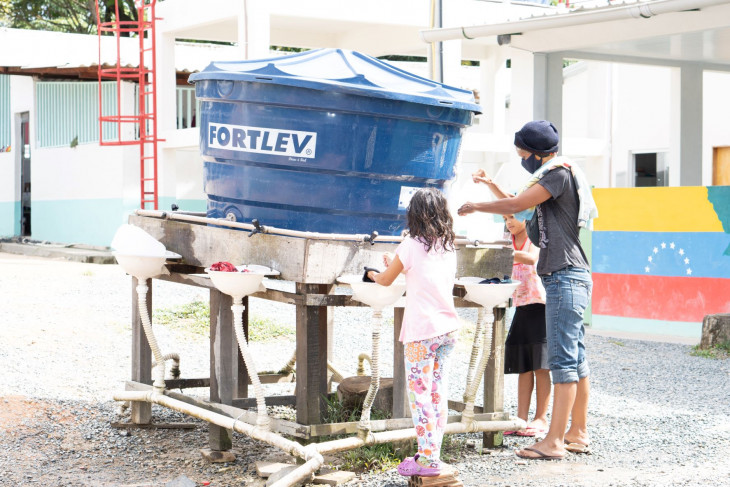
The projects not only benefit refugees and migrants, but also the local population in Pacaraima. Photo: Fabríco Marinho/ICRC
The team from the International Committee of the Red Cross also drilled a semi-artesian well and installed a solar-powered pump at the site, including a wastewater treatment system for the structures. The organization donated electrical materials to the Baptist Community, which were installed through Operação Acolhida (Operation Welcome, in English) to provide lighting for the area.
Pastor Gedeão Ferreira de Vasconcelos, leader of the Baptist Community of Pacaraima, spoke about how the church began assisting the migrant population four years ago.
"Now we have both male and female bathrooms. Back then, there was only one bathroom for 100 people. Around the time that the Committee arrived, they learned about our struggles and suggested improving the structure in stages," Gedeão explained, pointing out that the ICRC's partnership is not a one-off, but an ongoing commitment that provides both assistance and helps train agents to manage what has been delivered.
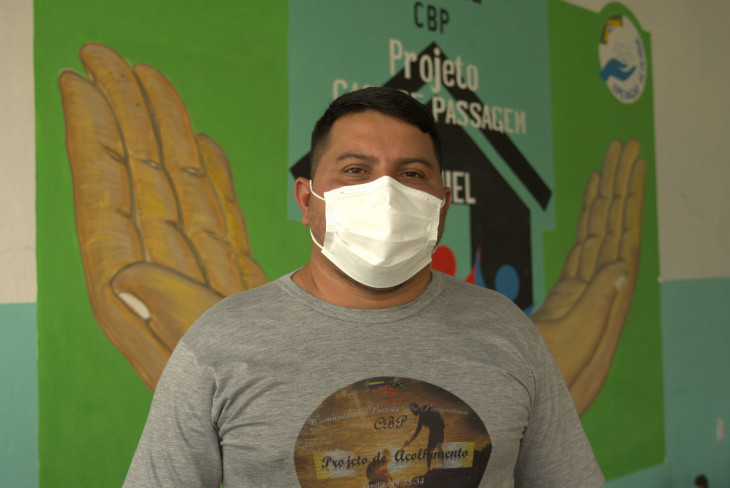
Pastor Gedeão Ferreira de Vasconcelos is one of the leaders at the Baptist Community of Pacaraima. Photo: Fabríco Marinho/ICRC
"It's really important that we have a pleasant, properly sanitized environment. It's a matter of maintaining dignity as human beings, of them knowing that they are accepted. There are cases, for example, of people who have gone days without drinking cold water, and here we have a drinking fountain. Some of them have even become emotional when they find out that here they can wash their own clothes here," he adds The premises are voluntarily cleaned by the migrant community itself, according to the pastor.
The space also caters to neighbors in the community, such as Maribeth Cárdenas, a housewife who frequently visits the facility to wash clothes and fill a large jug with clean water. She often takes home what she collects, given the fact that it is not unusual for the family to run out of water due to a water supply problem in the city.
"I come to do laundry for my family, and I take the opportunity to chat with my friends. I also collect some water because we never have enough at home and we don't have a well. I think it's because the city is really unbalanced and depends on a single [water] tank, which doesn't cover everyone. You can see that this entire structure is something really good, how much it helps the lives of those who live here," she asserted.
Beyond the Baptist Community, the ICRC has carried out a variety of local construction projects and assistance involving Water, Sanitation and Housing in Pacaraima. Artesian wells have been constructed in key locations, including points where shelter services or activities for refugees and migrants have been offered, but which also benefit the local residents.
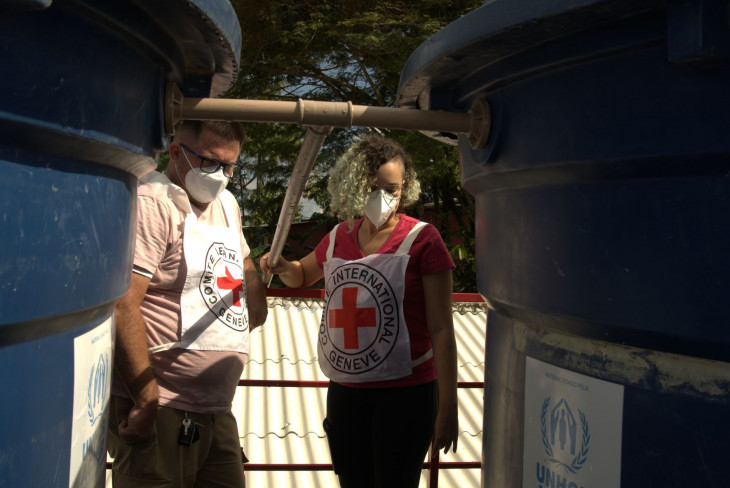
ICRC activities in the region provide access to safe drinking water and basic sanitation. Photo: Fabríco Marinho/ICRC
Some of the areas where artesian wells have been installed include the Diocese of the Catholic Church in the city, the Training and Reference Center (CCR, in Portuguese), two schools and a day care center in the city, and a state school. The ICRC also upgraded the artesian well in Pacaraima's only hospital.
Another community that was able to benefit was the indigenous people of Tarau Paru, which received restrooms, had their health center refurbished and a solar-powered water pump installed, which will improve the lives of over 900 people.
There are two other projects that the ICRC plans to initiate soon. The first is inside the Janokoida Indigenous Shelter, an initiative that serves the Warao ethnic group in Pacaraima, and it involves the renovation and expansion of the site's bathrooms. The second provides excavation support for the construction of a wastewater treatment system for the BV-8 Transitional Shelters, where the ICRC was sought out by entities from Operation Acolhida. The sector is also being expanded in Boa Vista.
Engineer Sara Lopes Souto heads up the ICRC's Water and Housing program in Roraima, which incorporates these concepts in the area of infrastructure within the context of humanitarian relief.
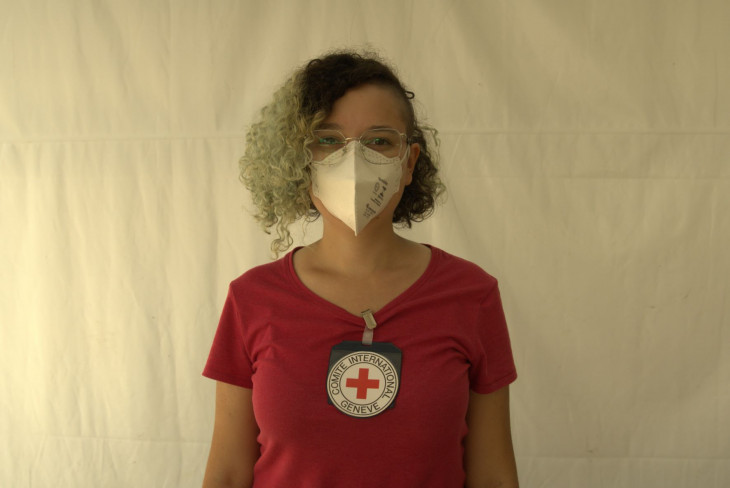
Sara Lopes Souto is in charge of the ICRC's Water and Housing program in Roraima. Photo: Fabrício Marinho/ICRC
"We directly intervene in projects, providing support through consulting services or mobilizing actors. We carefully monitor the post-construction process and form partnerships, as was the case with Funasa [National Health Foundation], which helped us out with training on chlorination and water testing. We also analyze what needs to be realigned and see how it is being used, what can be improved and what can be maintained," Sara noted.
The engineer believes that addressing basic sanitation and the water supply is a primary step in dealing with other humane issues. She explains, "This lends dignity to a person, because they are spaces and physical structures that receive and house people, and ensure their minimum needs are met so that they are able to then move on with their lives."
Text: João Paulo Pires

